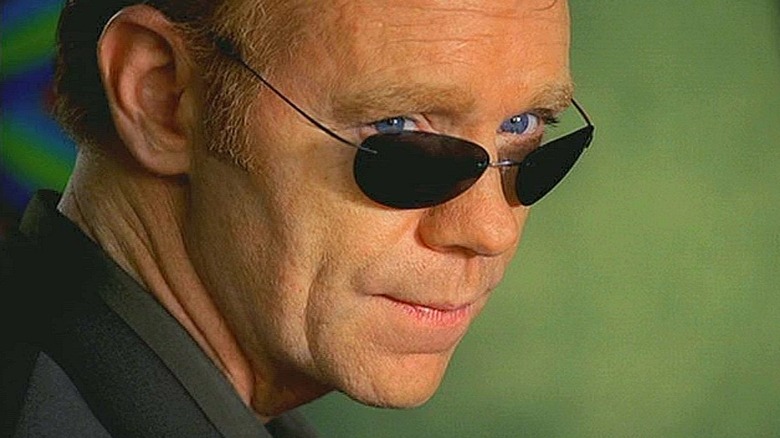What CSI: Miami Gets Wrong About Tracing Guns In Florida
Long-running CBS procedural "CSI: Miami" famously specialized in cases you'd only really find in the Miami-Dade area, similar to how "CSI: NY" covered crimes that could plausibly take place in New York City. Lieutenant Horatio Caine (David Caruso) and the rest of the Crime Scene Investigations team, including Calleigh Duquesne (Emily Procter) and Alexx Woods (Khandi Alexander), investigate the deaths of college students on spring break, hurricane aftermaths, and the complications of Cuban politics over the course of the show's run.
The use of location gave "CSI: Miami" real novelty, and the show became at one point the most popular television series on the air (via BBC News). It was canceled in 2012 after 10 successful seasons and countless instances of Caine quipping in front of dead bodies.
Like other "CSI" shows, however, "Miami" was very clearly romanticized and often fudged the realities of actual crime scene investigations. This is especially obvious with how guns get traced on the series compared to how things actually work for cops in Florida.
It's not that easy to trace murder weapons in Florida
On "CSI: Miami," it is often extremely easy to trace guns to suspects with criminal records. This makes sense for the show, as the episode plots are conveniently sped up by how simple it is for the CSI investigators to track murder weapons.
But in reality, Florida has relatively relaxed gun control laws compared to some other states in the nation (via Giffords Law Center). Many guns are not registered and there's no database for tracking gun owners and purchases. Firearms sellers don't even need to keep records of sales or report them to the police (via Giffords Law Center). And when law enforcement can track the last owner of a handgun, the process still takes about a week to complete, according to The South Florida Sun-Sentinel. That's very different from the rapid process by which "CSI: Miami" characters track down murder weapon owners.
Still, it's a given that Hollywood will fudge facts and details to create better drama. "CSI: Miami" definitely didn't depict the reality of Miami police officers with the utmost accuracy, but that meant we got 10 exciting seasons of lurid crimes and entertaining storytelling.

